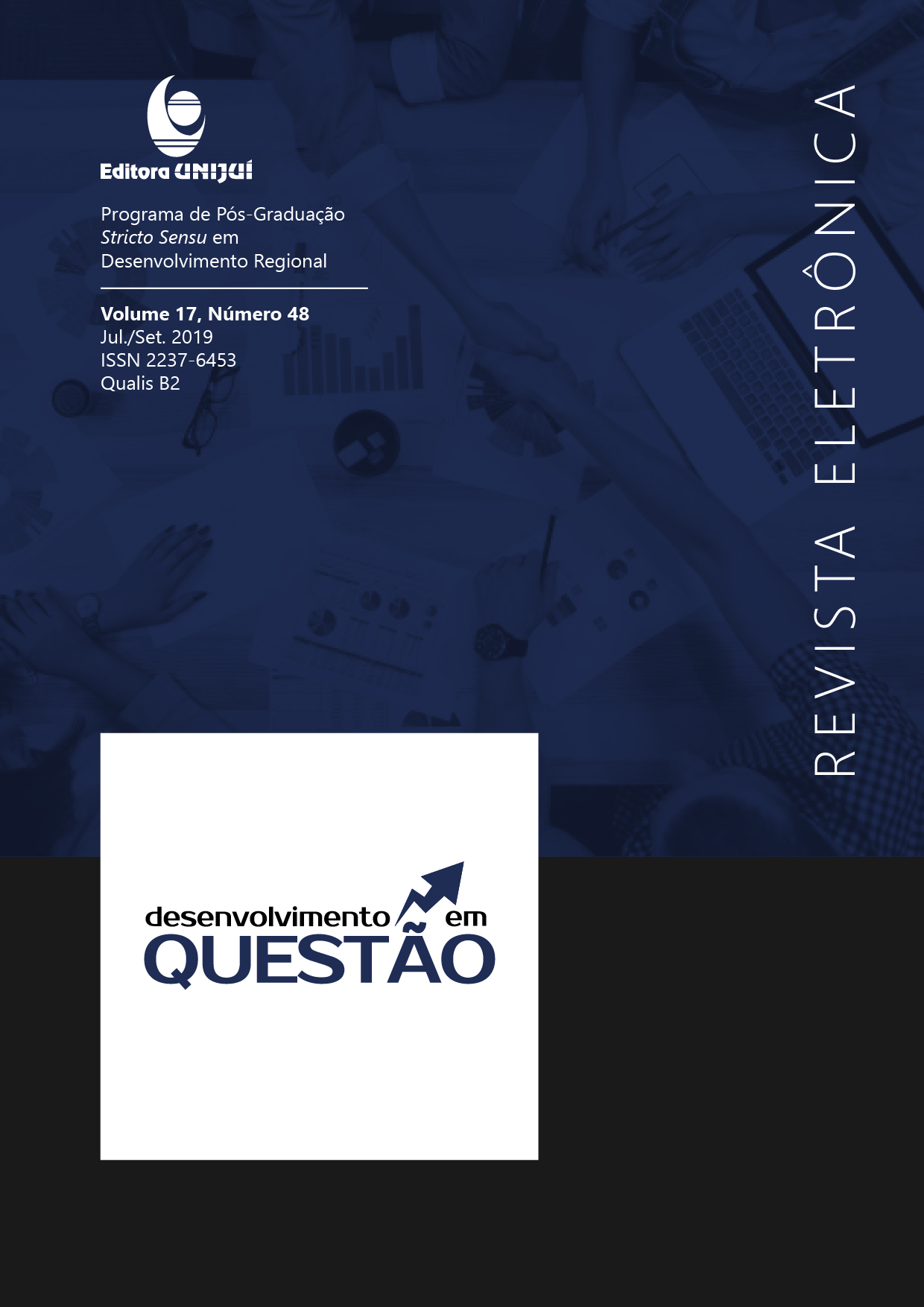Código Florestal e Pagamento por Serviços Ambientais: um estudo de caso com base na redução de carbono emitido e abordagem sistêmica das unidades de produção agrícola
DOI:
https://doi.org/10.21527/2237-6453.2019.48.213-230Palavras-chave:
Pagamento por Serviços Ambientais, Propriedade Familiar, Conservação Ambiental, Abordagem Sistêmica.Resumo
Com o novo Código Florestal (Lei nº 12.651, de 25 de maio de 2012) está se discutindo a implementação de um programa de Pagamento por Serviços Ambientais (PSA) para as áreas de conservação. Este trabalho objetiva avaliar a área de uma propriedade familiar em relação à adequação a nova legislação e a proposição de um programa de PSA.Foi realizado o mapeamento da área, visita in loco para observação das áreas de mata nativa e levantamento de informações com o proprietário.Com base nestas informações, realizou-se o cálculo da conservação do carbono e um diagnóstico dos sistemas de produção com base na abordagem sistêmica.O estudo de caso apontou para a importância de um PSA em uma propriedade familiar, tendo como base a área de conservação existente, as emissões de carbono evitado, no caso de desmatamento, e o baixo custo em relação a uma possível recuperação da área.
Downloads
Publicado
Como Citar
Edição
Seção
Licença
Ao publicar na Revista Desenvolvimento em Questão, os autores concordam com os seguintes termos:
Os trabalhos seguem a licença Creative Commons Atribuição 4.0 Internacional (CC BY 4.0), que permite:
Compartilhar — copiar e redistribuir o material em qualquer meio ou formato;
Adaptar — remixar, transformar e criar a partir do material para qualquer fim, inclusive comercial.
Essas permissões são irrevogáveis, desde que respeitados os seguintes termos:
Atribuição — Atribuição — os autores devem ser devidamente creditados, com link para a licença e indicação de eventuais alterações realizadas.
Sem restrições adicionais — não podem ser aplicadas condições legais ou tecnológicas que restrinjam o uso permitido pela licença.
Avisos:
A licença não se aplica a elementos em domínio público ou cobertos por exceções legais.
A licença não garante todos os direitos necessários para usos específicos (ex.: direitos de imagem, privacidade ou morais).
A revista não se responsabiliza pelas opiniões expressas nos artigos, que são de exclusiva responsabilidade dos autores. O Editor, com o apoio do Comitê Editorial, reserva-se o direito de sugerir ou solicitar modificações quando necessário.
Somente serão aceitos artigos científicos originais, com resultados de pesquisas de interesse que não tenham sido publicados nem submetidos simultaneamente a outro periódico com o mesmo objetivo.
A menção a marcas comerciais ou produtos específicos destina-se apenas à identificação, sem qualquer vínculo promocional por parte dos autores ou da revista.
Contrato de Licença (para artigos publicados a partir de 2025): Os autores mantêm os direitos autorais sobre seu artigo, e concedem a Revista Desenvolvimento em Questão o direito de primeira publicação.











